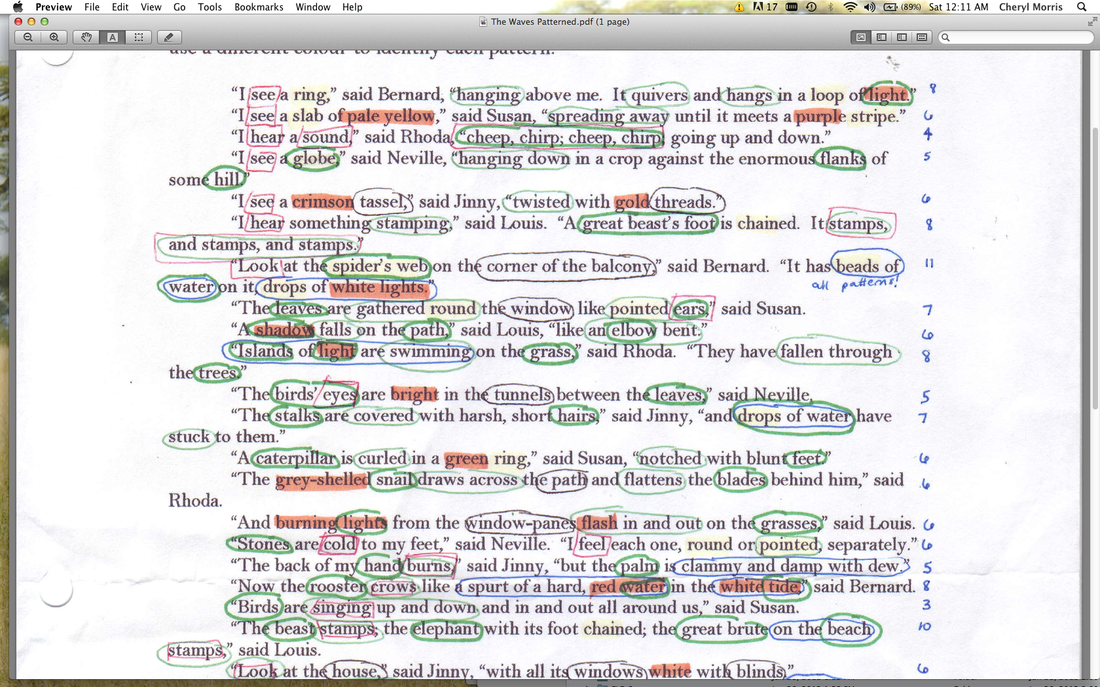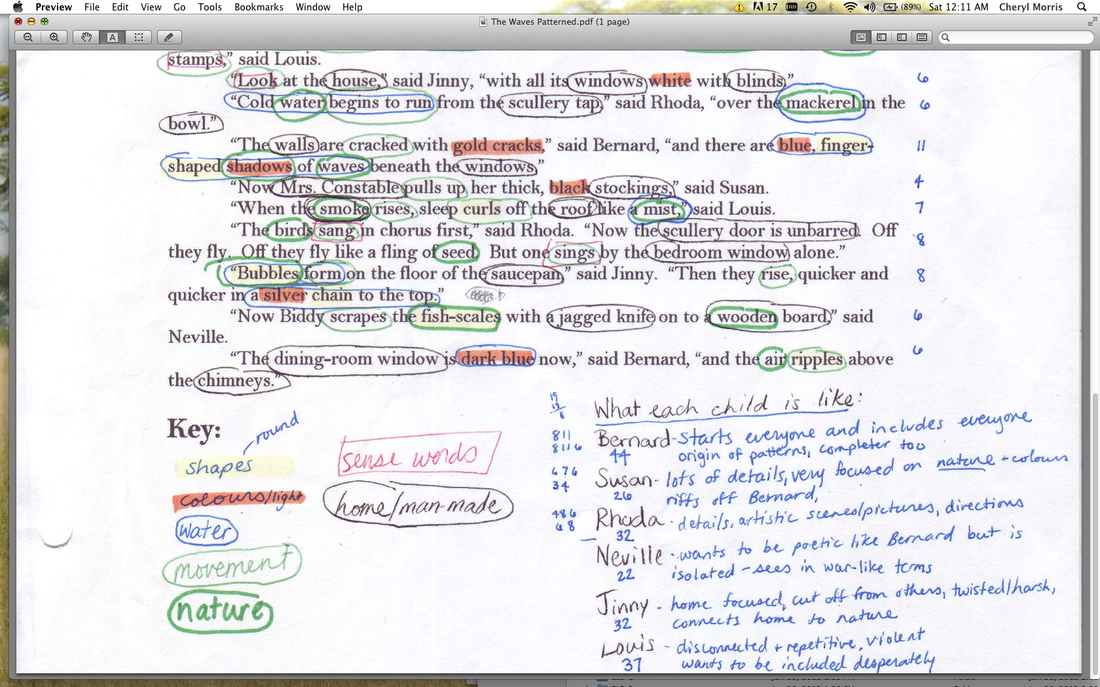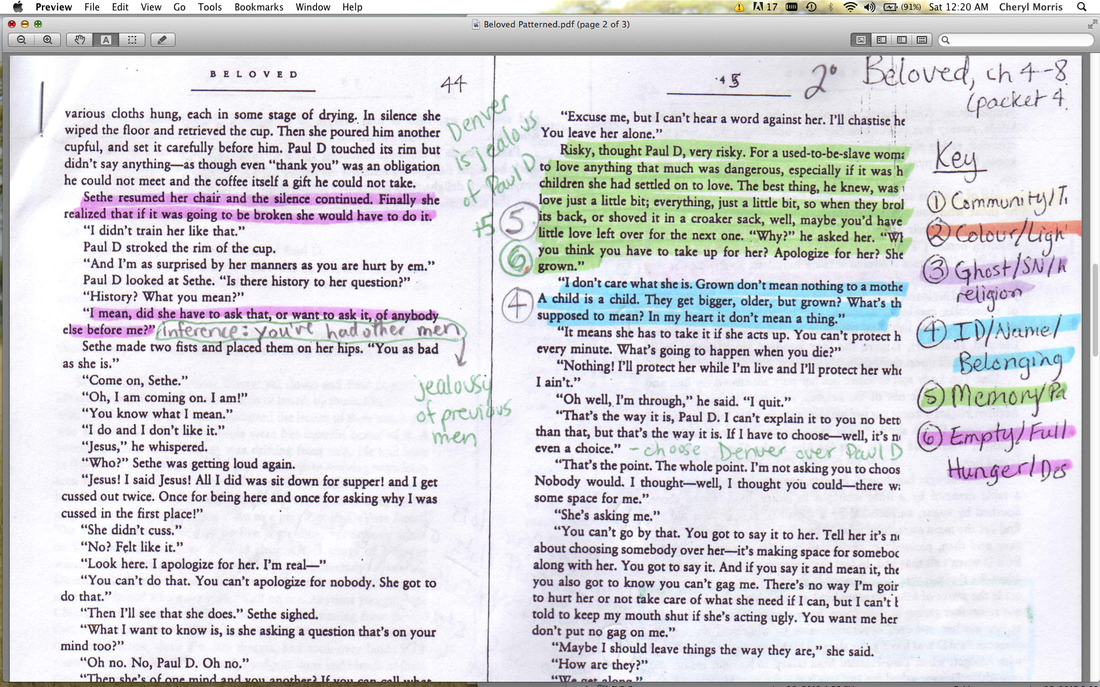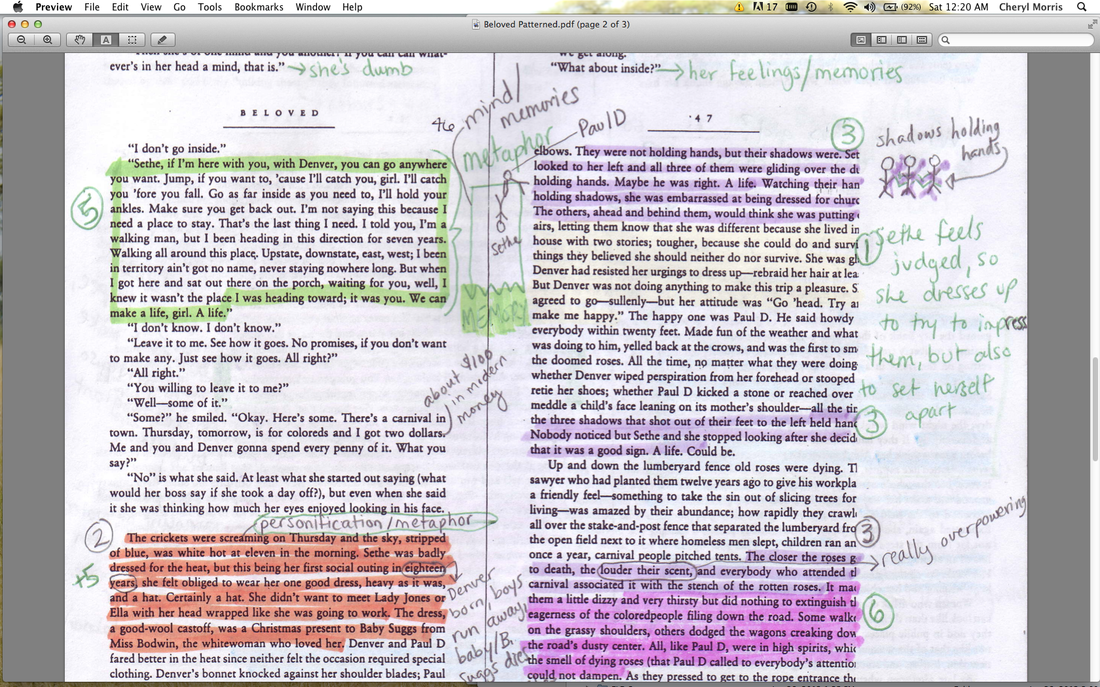I didn't want to come here. I had too much work to do, I had cats to tend, I had Very Important Things, none of which could be done if I took a vacation.
But thankfully, I have people in my life who push me to do things that are good for me, even when I don't want to do them (you know who you are).
So I've been at Asilomar in Pacific Grove, California for the last day and a half. This summer has been at a relentless pace - blogging, video filming, video editing, tweeting, conferencing (virtual and one in-person), meeting with teachers from my new school...even the road trip I did a few weeks ago was relentless, covering 2,500 miles and nearly the entire length of the West Coast in a week.
And now, the start of school is staring me down. I know many of you will have started already, either with students or with back-to-school PD. I am lucky to have until Monday before I am expected to attend anything, and two weeks from tomorrow until the students are expected to attend anything.
And instead of continuing the relentless push for planning out the year, hammering out the details of team-teaching with someone 2,500 miles away, doing paperwork to make sure I get paid...
Instead of doing those things, I am at Asilomar, by the sea.
And here is what I DID do:
I finished The Things They Carried. I read parts of Price of Privilege, The Years (Virginia Woolf), Bird by Bird, and How to Think and Write about Literature.
I sat, staring at the ocean, getting sunburnt and catching the way the fog melted away above the trees.
I wrote. What started as a one-page attempt to write a descriptive essay about a coffee shop turned into a larger creative non-fiction project. The only reason it became that is because my collaborator read it, and saw the seed of something bigger than a coffee shop. He cut it to pieces and made it make sense. Then he told me to stop thinking and start writing.
Before I got to Asilomar, I had about 19 pages. Now, after I've taken his advice (finally), there are more than 40. Some parts are good, others are horrible, and some are great. But what matters far more than quantity or quality is that I actually wrote.
******
In college, I wanted to be a writer - creative non-fiction or academic, I didn't care - but through time, circumstance and several discouraging realities, I stopped writing. Even starting this blog was daunting, because publishing for a global audience of professionals was much different than writing lessons or sample essays for my students.
For me, what it took was the seed of an idea. And someone to encourage me, even before it was any good. To edit parts to make them more clear, or precise, or profound, but mostly, to hear the story I was telling and help me find the voice I needed to tell it better.
*****
Because of that experience, and many more like it, I start this year, completely obsessed by one question:
How do I get my students to experience the joy of collaboration, the freedom of writing, and the beauty of learning?
Because this summer has taught me that all three are things of great value, to be sought after and treasured. And all three have made me a better teacher, a better friend, and a better human being. If I can get my students to have the kind of year I crammed into the last six weeks of summer, I will feel successful (and I bet they will too).
I want them to be able to try out ideas, knowing they might fail, but if they do, there's no one to mock you. And sometimes, the other person can make the idea a success in a way you never thought possible, and suddenly, it's ion lucidity, and it's magical.
I want them to see learning as something intrinsic to human experience. That we are all constantly learning, whether through making inferences about the environment or other people, or reading a book, or walking through a Safeway. That learning is not bound by the classroom walls.
I want them to see knowledge not as a capacity for facts, but as the way you use facts to make deeper meaning of your world. When they get in an argument about whether Eucalyptus trees are native to California, or what street Voodoo Doughnuts in Portland is on, or whether the exact linguistic phrasing they used was constructivist or behaviouralist, I want them to say, "Hang on, I'll Google it."
And if and when they were wrong, I want them to laugh it off and apologise for insulting their friend's mother. And most importantly, I want them to take what they've learned and make meaning out of it, rather than just being content with knowing facts.
(and yes, those are real examples from this summer...all except the insulting of mothers.)
I want them to spend hours listening to their close friend talk about how their life feels like a series of roadblocks. I want them to give advice, some bad, some good, but do it because they care so much about the person they want the best for them.
I want them to be rooting so hard for their friends that there isn't a hint of competition anywhere. That any victory their friend finds is shared, and more valuable than a victory for themselves. I want them to have people to trust and who trust them. I want them to make mistakes, and learn how to ask for forgiveness and reconcile the relationship.
I want them to have the summer I had.
*****
That is the essence of the MetaFlip. Taking all these experiences in which we as educators and human beings find value and meaning, and making them accessible to our students. Breaking it down into processes and showing them how to navigate through challenges and failures. Showing them what friendship and collaboration are, especially at times where the mess threatens to overwhelm the relationship.
Building assignments that are not just personalised, but are personal. That take the things we value - friendship, collaboration, learning, writing, reading - and presents those things to our students in a way that gives them a foothold to do each for themselves.
*****
Do we know how to do this right now? Not quite. But we have some ideas:
1. The projects that Andrew, Karl, Crystal, Kate and I have been working on this summer will turn in to model projects for the Blank White Page project. Students will see our authentic products and how we created them to help them understand how to make it something meaningful.
2. In every video series, Andrew and I are aware of our process as much as our content. We want to make the students see the process and try it out, rather than just loading them up with content and asking them to apply it on their own. We want the end of every unit to have some reflective time about how they are doing, how their collaboration with peers has been, what they need to work on/change to make the next project even better, how they can improve the way they're learning...etc.
3. The reading will always have a component of personal education. We will talk about concepts like ubuntu, or ion lucidity, or love or friendship. We will show students that we don't have all the answers, but we're learning. That is the most powerful tool in our toolkit, I think. We are willing to fail, and then demonstrate resilience. We are willing to try something, reflect on it, and ditch it if it doesn't do what we want it to do. We are willing to make our lives as transparant as possible so students can see through the glass and into our heads. It's scary, but it's exciting.
4. We have to show the mess. Andrew and I will be team-teaching this year. Both our names will be on the board, and on the syllabus, even if our classrooms are 2,500 miles apart. The introduction video we do will be both of us. We will be teaching the same skills at the same times, albiet with slightly different content to fit our own school/curricular context.
******
We are embarking on this team-teaching endeavour because we love working together, yes.
But we are also doing it so our students can see a model of how to work with someone else. How to make your ideas better by sharing them. How to have fun, but still be productive. We've never seen the other person teach (except on video), so I'm sure obstacles will arise, but I'm equally sure that we will come up with such amazing solutions to overcome those obstacles that we will remember them as blessings, rather than as trials.
Teaching is hard in isolation, but teaching in a flipped class is impossible without collaboration. There is no way you can go it alone. The Great Myth of American individualism is that you can be wholly self-reliant, and that's the highest form of human existence. The Great Myth of the American teacher is that they comes up with the perfect lesson on the way to school and then it changes lives in seconds...
But that's not the reality. The reality is burnout, playing the political game, avoiding people with an axe to grind. The reality is long, lonely hours, with too much to do and not enough time. The reality is that half of those who enter the profession will have left it within five years.
For all those reasons, we have to fight back against these myths. Working with someone who makes you better is far, far better than trying to struggle through on your own. Collaboration sharpens your ideas, and magnetises them to the point that you are surrounded by so many ideas you just don't know where to start. And then collaboration helps you find the best idea, polish it, and put it into action.
*****
But sitting here in Asilomar, I'm reminded that there will be time for all of sharpening, the collecting, the selecting, the polishing. There will be time for lesson design, and video production, and blank white page...
...after I return.
Right now, the only thing I need to do is model resting, relaxing, and reading.






 RSS Feed
RSS Feed
